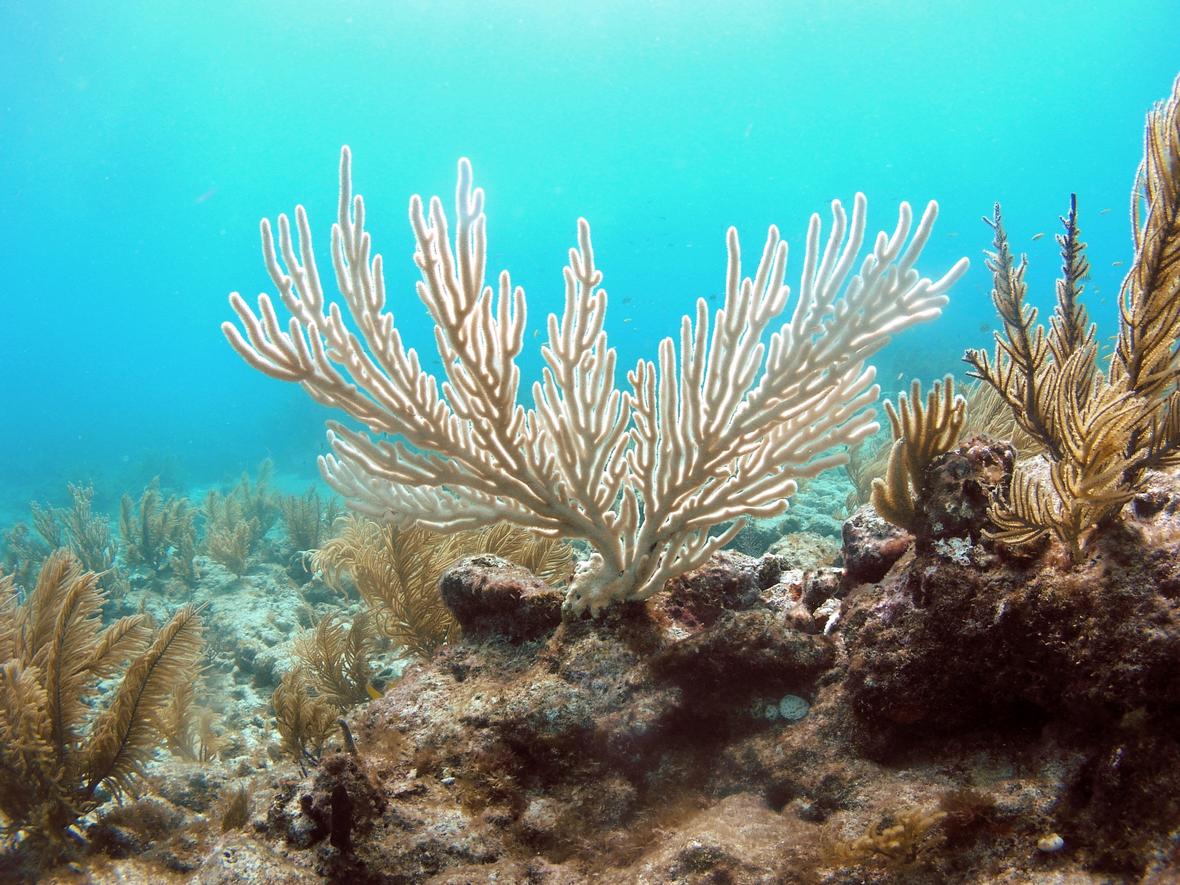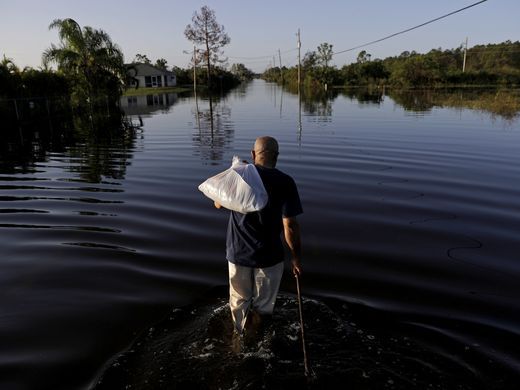Green - Loss Of Coral Worsened Florida's Hurricane Irma
Global Warming had a two-fold effect on Hurricane Irma has it devastated Florida's coastal regions. Warm ocean temperatures made the storm more powerful, and contributed to weakening the southern US state's natural shield.
The Florida Reef Tract is the third-largest barrier reef in the world; it stretches 580 kilometers from the Florida Keys to the area north of Miami. But warmer ocean temperatures have caused the same problem off Florida as is occurring on Australia's Great Barrier Reef: Bleaching. Back-to-back bleaching events in recent years have reduced living coral to ten percent of its former range.

"If you reduce coral reef health - if you go from that really rough coral reef with lots of live coral to a degraded coral reef with a relatively smooth surface - you have increased run-up in flooding," said Curt Storlazzi, a research geologist with the U.S. Geological Survey, to the Washington Post.
Scientists are learning more about how coral reefs - healthy coral reefs - absorb much of the impact of churning waves and storm surges before it reaches land. A 2014 meta-analysis of 250 studies determined that coral reefs may reduce the energy of incoming waves by up to 97 percent; another one from 2016 suggested that reefs may reduce the height of waves by 70 percent. This was even better protection to populated areas than salt marshes and mangrove swamps, which are also disappearing along America's gulf coast.
"The main effect of coral reefs on flood reduction, period, is because of wave breaking," said Michael Beck, lead marine scientist at the Nature Conservancy. "It's acting like a submerged breakwater offshore, breaking those waves, reducing and dissipating that wave energy offshore, so that then only tiny little amounts of wave energy come onshore."
But bleached reefs break apart more easily, rendering them less useful in breaking up subsequent waves. As Mr. Storlazzi wrote in a 2015 paper in the journal Geophysical Research Letters, the continued degradation of earth's coral reefs will have a "significant negative impact on the ability of coral reefs to mitigate the effects of coastal hazards in the future".
And the future is here.









 Create PDF
Create PDF Print
Print Email to friend
Email to friend